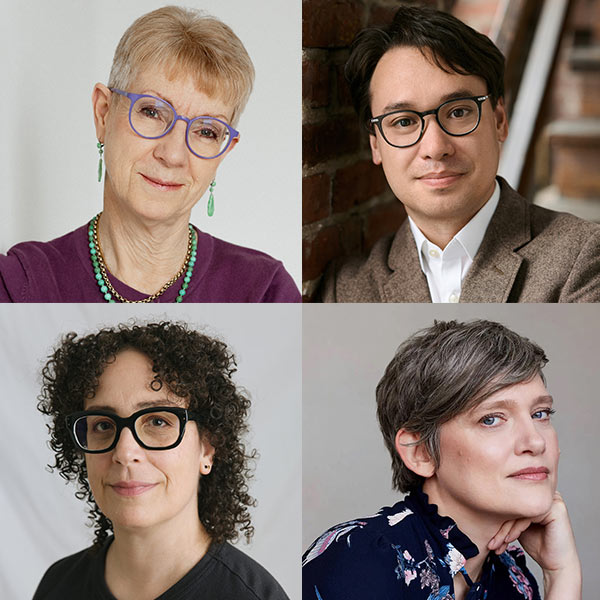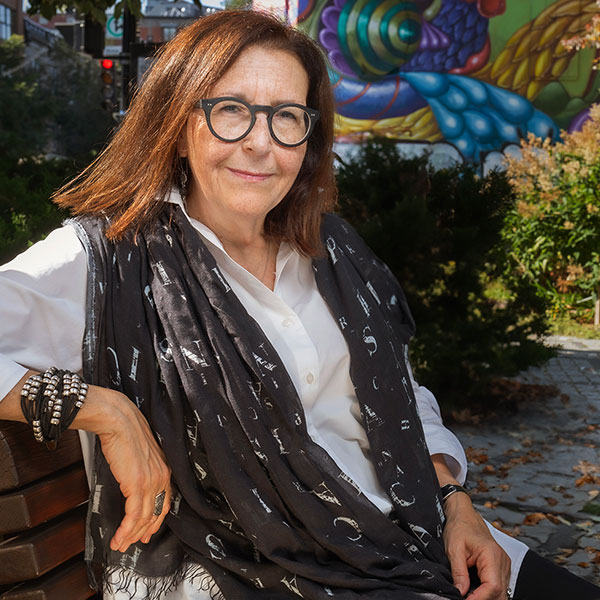The idea for Harold Heft’s final book project came from the worst of circumstances: his devastating brain tumour diagnosis in 2014 at age 49.
Heft, BA’87, and Peter O’Brien, MA’85, close friends since their McGill days, began work on their co-creation during Heft’s illness, laying the foundation for A Perfect Offering: Personal Stories of Trauma and Transformation (Mosaic Press).
Published in 2020 and now in its second printing, the book is a collection of stories from 31 contributors – including Heft and O’Brien – about their own experiences with trauma. Powerful and poignant, they cover a range of harrowing life experiences from the death of a child to a life-altering car accident and sexual violence.
The opening story comes from Heft who died in 2015. “The most important lesson this illness has taught me – that I would not have otherwise understood – is that there is an abundance of goodness in people,” he wrote.
Heft also listed questions that were on his mind, such as “Is it possible to live a full life with the knowledge that death may come at any time, or is it necessary to do so? Should I have been doing that all along?”
When her husband fell ill, he was devastated by his diagnosis and became preoccupied with what happens to a human being when faced with an unthinkable chasm in their life, says Suzanne Heft, who edited the book with her husband and O’Brien. “This notion that you encounter something that you’re unprepared for wholly and completely, and yet you have to persist and sort of make sense of it.”
In conversations with Harold, O’Brien says they realized “Wow, everybody we know has gone through some form of trauma.
“And we are both storytellers, so therefore everybody must have a story to tell,” says O’Brien, a writer and editor.
They began contacting people to see if they would be interested in taking part in the book project.
Some of the stories we all tell in life are pleasant, happy and celebratory, notes O’Brien. “But we also have other stories inside us, and some of those are dark and traumatic and troubling and reverberate throughout our entire lives. And to be able to share that, to externalize that, to articulate it even, can be very, very beneficial for the storyteller, as well as the audience.”
For most of the contributors, this is their first publication, says O’Brien, who wrote about losing his father as a toddler.
In “To My 17-Year-Old Self”, lawyer Lynn Gluckman recalls lying on a beach in Tel Aviv with Canadian students when a pipe bomb exploded, the vibration lifting her off the ground. A girl her age a few feet away died. The terrorist attack “felt like the end of the world” to Gluckman. Since then, she has “endured many difficult struggles. Each one has given me strength that has carried me through the next one.”
Cree filmmaker Jules Arita Koostachin delves into intergenerational trauma from her mother’s experience at a residential school where she was abused – and both of their healing journeys. “After a decade at residential school, she was left in disarray and unsure as to who she was as an Indigenous woman,” writes Koostachin, who is also a writer, actor and activist.
Heft lived in Toronto but was a “Montrealer to his core”, as his obituary noted.
“One of the things that McGill did for Harold was turn him into a reader and a scholar. And it’s where he really, I think, found his footing in the world in a lot of different ways,” says Suzanne Heft.
Heft went on to earn a master’s from the Université de Montréal and a PhD in literature from Western University. He ended up leaving academia and thrived as a fundraising and communications professional. He also found time to write three books, including The Shape of This Dying: Remembering Alexander Bercovitch, and Build a Better Book Club, which he wrote with O’Brien.
Suzanne Heft, a fundraiser at Ryerson University, and O’Brien continued to work on A Perfect Offering after Harold’s death.
She hopes the book honours those who shared their stories. “And I’m hoping that people who read it, know that it’s okay to have a hard story,” she says. “There’s that old saying, ‘a burden shared is a burden halved’. I think when we tell our stories, not only do we release a little bit of what we’re carrying ourselves, but we also make it easier for others. We pave the way for others to say, ‘I have something to say about my life’.”
That act of sharing stories is one of the ways we share our humanity and our understanding of each other in the world, she adds.
“I think my hope for the book, and Harold’s hope for the book, was that people would take some comfort in a book like this – to know that they were not alone, to know that human beings are remarkable in what they endure.”


